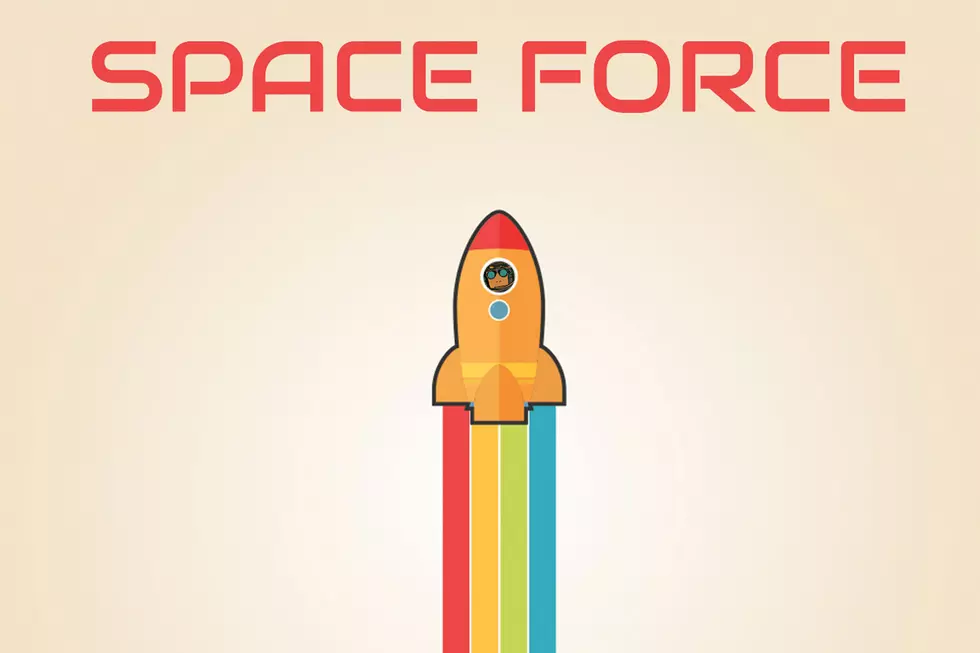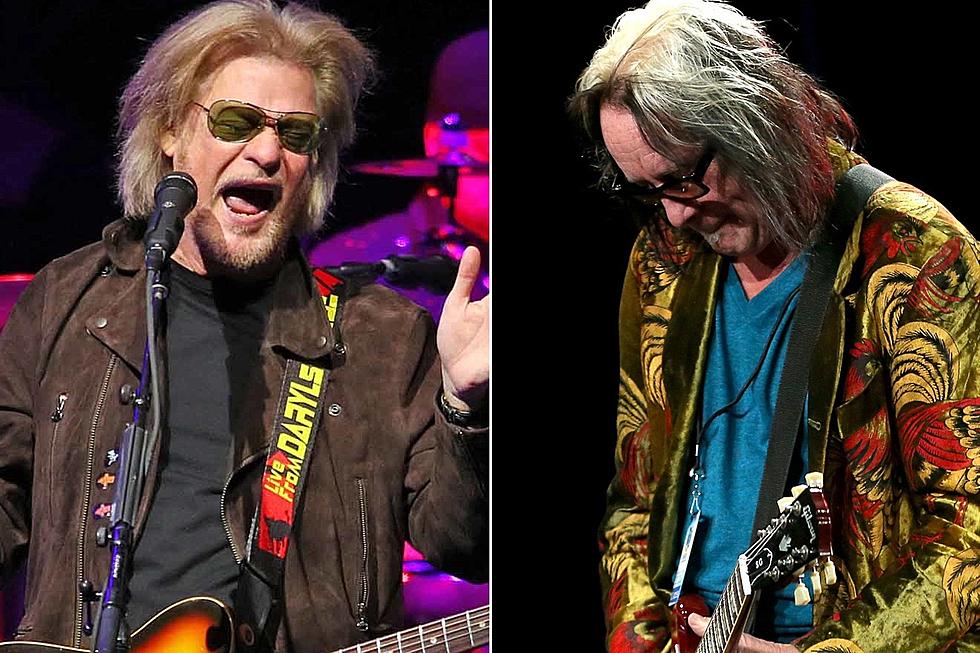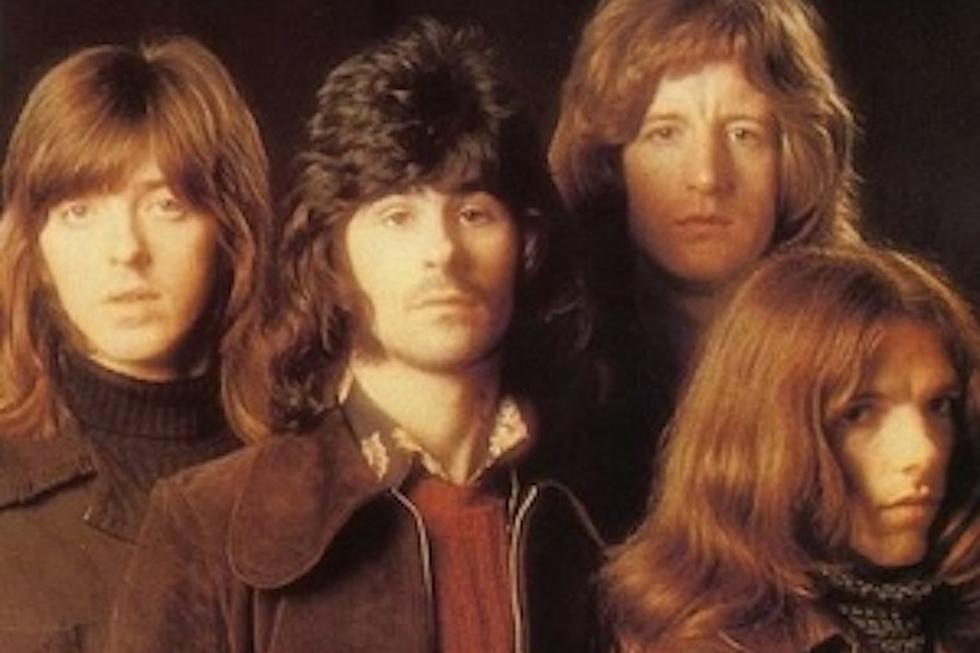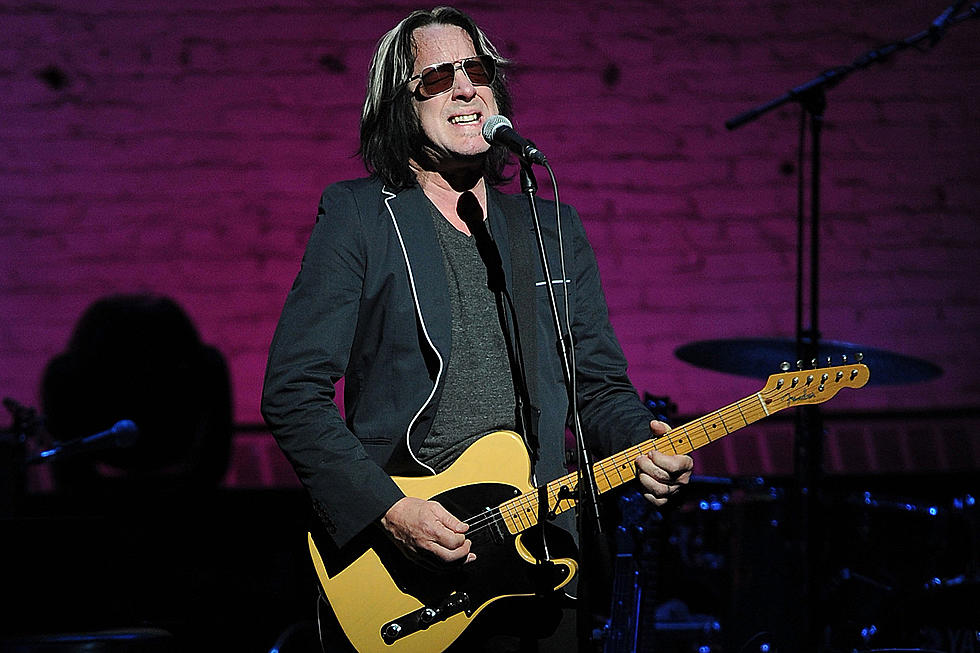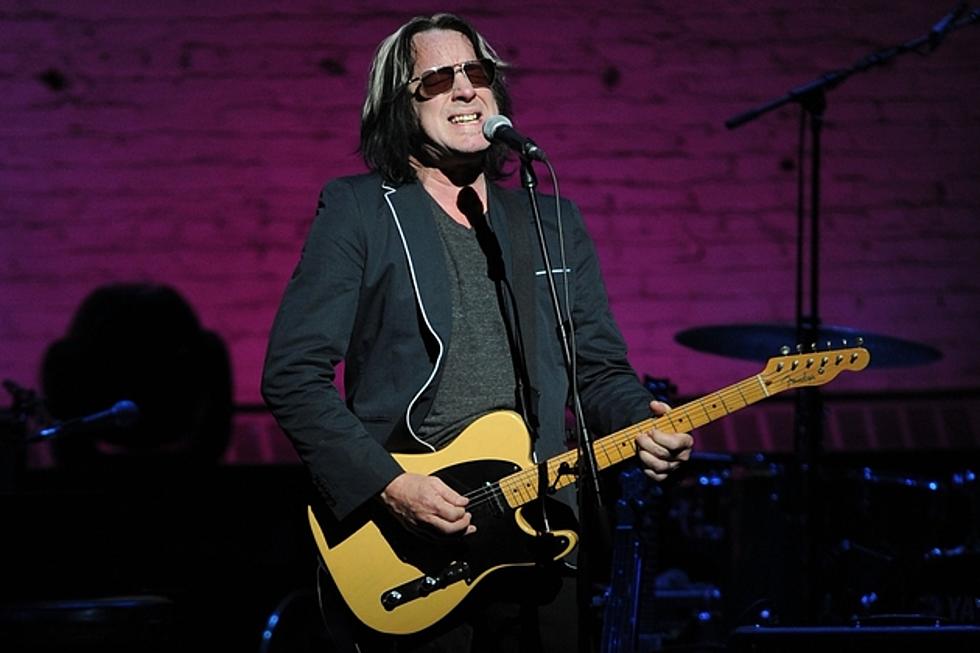
Todd Rundgren On ‘Maximizing the Sonic Realm Available To Me’
Todd Rundgren spent the better part of 2012 addressing the varied nature of his recording career with tour dates that appropriately promised an “unpredictable” evening of music from the veteran singer/songwriter and producer. Rundgren fans have learned to expect the unexpected when it comes to albums and tours. As Rundgren himself acknowledges, he’s aware that sometimes his recorded actions are “confounding.”
So what’s next from Rundgren? As it happens, he decided to go back to the basics to make an album that sounds more like the Todd Rundgren you might expect. ‘State’ will be released on April 9, and it’s Rundgren’s 24th solo release -- a figure which doesn’t factor in his work with Nazz and Utopia. Adding in those recordings, Rundgren is 35 albums deep into his seemingly never-ending musical adventure.
We recently spoke with Todd Rundgren to get the lowdown on the new album, technology and what fans can expect on his upcoming tour.
A new Todd Rundgren album is always a welcome surprise. What can you tell us about the origins of this one?
Well, the principal origin was that I actually got an offer from a label to put out a record! [Laughs]. It doesn’t often happen anymore. Usually, I make the record and then I go find someone to distribute it. If I decide to make it, it gets made and if I decide to put off making it, it wouldn’t get made.
This time, we had a label who wanted a record and they wanted to release it within a certain time frame. So that was the first motivation to actually get a record to them, and one that they would not regret having underwritten in the first place. And then after that, I was working on a concept, but it was something that was too grand to really fit in the time frame of this particular record. So I re-calibrated and decided that I would respond to essentially a phenomenon that I’ve been somewhat involved in recently, which is working with younger artists who cite me as an influence on them.
So I thought, “Well geez, if I’m influencing them, maybe I should be doing me instead of some other thing!” [Laughs]. So I decided to do a record that would be one that I would logically make, but also using a methodology that I had to a certain degree popularized, which is the idea of maximizing the studio as a sound source as opposed to using real players all of the time or trying to create the sound of real players.
I realized that I had kind of drifted away from that. Every once in a while, I would do an example perhaps of something electronic, but to actually do a record in which I’m trying throughout to maximize the sonic realm available to me -- that I haven’t done in a while.
That’s interesting to hear you say that, because I think it comes off as being very palatable as a Todd Rundgren record and it’s a little bit more what people might expect from you, so it makes sense to hear you describe it that way.
Well, I think so. And some of my other recent records may be confounding, because of their origins and the ultimate concepts that they embodied. For instance, I think that ‘Liars’ is probably the last record that people thought, “Oh, that’s a Todd Rundgren record!” [Laughs]. Because after that, I figured that, “I can’t do ‘Liars’ again, I have to do something else.” I got it into my head that I had somewhat neglected the guitar and then I did a record called ‘Arena’ and it was not a particularly bad record -- it wasn’t a bad record at all, but it was built around a certain concept, which is a guitar quartet, with a little bit of augmentation here and there.
But [it was] essentially, a guitar quartet recorded in that 1970s/early ‘80s way that arena rock was recorded [with] songs written to conform to that arena rock model, with singalong choruses and hand-clapping sections and that sort of stuff. That was all well and good, but it got followed up by a record of Robert Johnson covers, which essentially, I had agreed to do as a condition of getting my album distributed by the label. So people are wondering, “Well, what’s that all about?” Because it isn’t even original material anymore.
And then the record that came out after that was called ‘[Re]Production,’ which was essentially me doing modernized versions of songs that I produced for other people -- once again, no new material.
So between ‘Arena,’ which came out like four years ago . . . and now, there has been, you could say somewhat of a paucity of songs that I have actually written myself. So I think that is one significant thing -- it’s new original material and people always appreciate that. So the character of it, it is also an attempt to synthesize my ultimate studio sensibility with what’s happening in the broader music scene.
Conceptually, the grouping of material that is on this record, has it been coming together in your workshop for a while? How long has this material been in the works or in your arsenal?
Well, I started in earnest probably in September, in terms of actually getting this record made. I had a few fragments that I had been working on, but mostly I had been doing research, just listening to a lot of different stuff and following links around YouTube and seeing what’s popular and discovering what I did want to do and discovering as much what I didn’t want to do.
Essentially, anytime I would hear something that I thought was apropos to my project, I would then stop listening to it so that when I get to the actual process of creating a record, I’m not trying to imitate something, I’m working from a very vague memory of something. So essentially, I’ve got these little visceral musical memories that I can trace back very vaguely to the original artists but in that sense, I couldn’t tell you literally what they were. Because they’re just impressions to me, and then I’d re-translate those impressions into something concrete.
Ultimately, once the record that we're holding came together as we have it here, how did it all end up hanging together for you as an album?
Well, it’s always hard for me to say, particularly when I’m working on deadline. My other records, I might finish them and then put them away for two weeks and then go back and listen to them again and make little adjustments. That whole process may take a month or six weeks or however long it takes for me to get the distribution deal and get all of the artwork together and that sort of thing.
So I would normally have a fair amount of time to consider what I’ve done and make whatever adjustments I think are necessary. For this record, I had a fairly hard delivery [deadline], so after I delivered the record, then I had a chance to deliberate on it, and only then did I realize the nature of what I had been working on. In particular, a lot of the songs, I wasn’t sure what they were about until after I had finished and delivered the album and had no opportunity to change them!
Collaboratively, who else is on this album with you? In particular, who is singing with you on ‘Something From Nothing?’
That’s Rachel Haden. She was the bass player in the band when we did the ‘Arena’ tour and she just has a particular kind of voice for that kind of thing -- a very unmodulated [voice that is] almost like a choirboy and that is what I was looking for, for that particular part. I couldn’t make my own voice do it. Otherwise, everything is all me and the studio and my guitar.
You were talking about delivering this album on a deadline. You seem to me like a guy that probably doesn’t necessarily like to work with deadlines when it comes to your own material and it seems like you probably have the means to record your own stuff , turn it out and sell it to the highest bidder. But it also seems like you’re on the road so much that I would guess you probably don’t record unless there’s a reason to.
Yeah, that’s correct. When I’m on the road, I try and commit myself to the live performance and it’s hard for me to focus on a project such as [an album]. A song, I can do or a remix or something like that, but doing a whole album -- I require a certain degree of solitude and a certain degree of space. Not only in terms of geographical space, but in terms of not being interrupted. It takes me an hour sometimes just to get in the proper frame of mind to think about what I’m doing. So I find it hard while I’m on the road to get into that proper mentality.
Having said that, I have written music on a deadline when I worked in television and films, and all of that can be hugely rewarding in some ways and it’s a very financially dependable way to work. It’s really hard. And I have to say that in the the long run, I didn’t really enjoy my time that much doing it. Mostly because you have little control over the final product and you have to make the music in a way that you don’t take it personally. You have to just do it and let the chips fall where they may and in a way, not care what happens to it afterwards, and I just kept caring too much.
I would listen to the shows afterwards and say, “I can’t hear it!” [Laughs] Sometimes you’re not supposed to hear it -- you’re only supposed to feel it.
Technology seems to be an ongoing theme in your music and a continuing passion for you personally. What do you think about where things are at with streaming subscription services, kids listening to full albums on YouTube and things like that?
As I have probably said [an] endless number of times to an endless number of ears, it’s not as if I had anything directly to do with the way things turned out. I was just always in a position to have the necessary information to deduce what might happen. It was always remarkable to me how ignorant the labels were of the listening habits of their own customers, and how obstinate they were in denying those habits and then trying to essentially alter those habits instead of retooling their business to adapt to them. So all of the stuff which the many traditional artists find confounding, all to me seems completely logical, so there’s no point in having an opinion about whether it’s good or bad. It’s the way it is. You have to figure out how to adapt to it and utilize it.
I feel like you have an interesting dog in the hunt because you’ve always been creatively engaged, whether we’re talking about your idea for a video channel back in the day or the music subscription service that you were looking to mount with PatroNet. It seems like there are times, particularly with that last example, where what you want to do is at odds with where technology is at that point.
Well, it’s also that I’ve been heavily involved on the production side. My very first records, I was very interested in how you get the particular quality you want out of it, and I began to learn about the engineering and aspects of production and things very early on. I got hands-on with the process and taught myself how to engineer, as opposed to just being a producer who asked the engineer to make it sound nice.
I wanted to have first hand knowledge of how to do that. So it’s that interest in the process side and how your knowledge of the process affects the quality of what you’re doing that’s always appealed to me. Once you do that, you’ve got another perspective often that other people don’t have, because it’s not simply having the newest thing. It’s hanging out with people who are working on the next thing so that you know what the trends are and you know where things are going and you know what the possibilities are, as opposed to maybe the average artist who is simply waiting to be told what to do to succeed. [Laughs].
How much of the new album will you get to play on the upcoming tour dates?
We’ll do substantial parts of it, and we’re going to work in a lot of other music that would fit in well with this particular kind of presentation. I’m planning on doing something that’s high on sensory value, as opposed to just a bunch of guys standing around playing; we’re going to have a lot of lighting, effects and that sort of stuff. So it will be a real presentation and hopefully something that engages the audience on a much more visceral and physical level.
More From Ultimate Classic Rock

